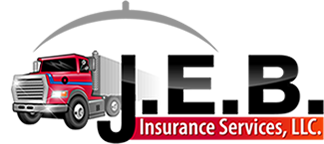For the commercial or owner operator truck driver, technology can make life easier or harder. GPS and cell phones when used safely, have made life easier for truck drivers. However, other types of technology, often referred to as “disruptive,” cause revolutionary changes that can spell the end to the way things are traditionally done. With 3D printing, it’s not completely clear how it will impact the trucking industry in the long term. However, one thing is fairly clear, it won’t make trucking obsolete or drastically disrupt it next year or even within the next ten years.
What Is 3D Printing?
Imagine how a brick layer builds a wall. He lays down bricks one row at a time starting with the bottom row. After finishing the topmost row, the wall is complete.
A 3D printer could build such a wall out of plastic in a similar way. It would squirt out a thick elongated bead of plastic (like squeezing out a long bead of toothpaste) one layer at a time starting with a bottom layer, and build up the wall with successive layers until it finishes the top row. The plastic bead material would quickly solidify. 3D printers can build up very complex objects this way out of a variety of materials. The printer only needs instructions and raw material.
The Threat of 3D Printing to Trucking (Worse Case Scenario)
A worse case scenario occurs when 3D printers and the raw materials they use become so capable, cheap and accessible that everyone can 3D print any product by downloading instructions from amazon.com and other online stores that sell the instructions. In this scenario, mass transportation of many consumer goods is no longer necessary. The raw material will require truck transport from its manufacturers to both retail outlets and to consumers.
The Most Likely near Term Outcome
Near term here means at least a decade, if not longer. 3D printing outperforms traditional ways of making complex objects. For example, the aerospace industry is having great success at making jet engine components and rocket engine nozzles with 3D printing.
However, the problem with 3D printing is that it’s too slow to compete with traditional mass production of simple things such as pots and pans. Even simple plastic shapes such as drinking glasses and plates are more efficiently made with standard mass production techniques. 3D printing these goods at home or even commercially is too expensive. It’s far cheaper to pick these up at a local store or have them shipped by ordering them online. 3D printing has a long way to go before it makes truck transport of these common but necessary goods obsolete.
3D printing will have no effect on the transport of medical goods, food, fuel, and basic raw materials. At some point, goods of intermediate complexity may be 3D printed commercially. This will likely be done in local mini factories and will require local truck transport. Of course, trucks will have to supply the raw material used by these mini factories. We at J.E.B. Insurance Services are happy to state that this new technology isn’t likely to make trucking obsolete anytime soon.
Are your insurance needs covered? If not, we can provide commercial or owner operator truck insurance in Tennessee at affordable rates. Contact us today to learn more.


